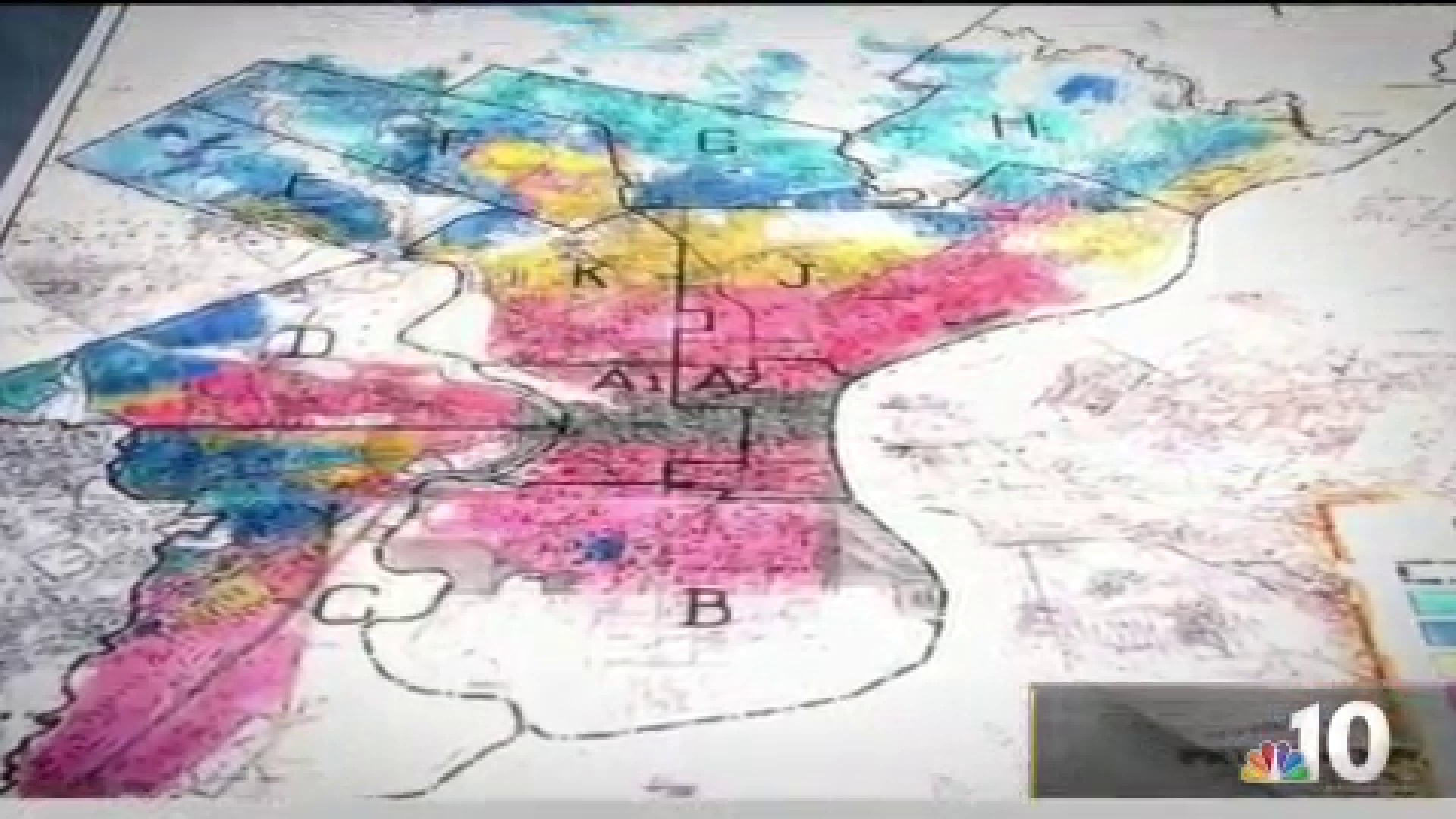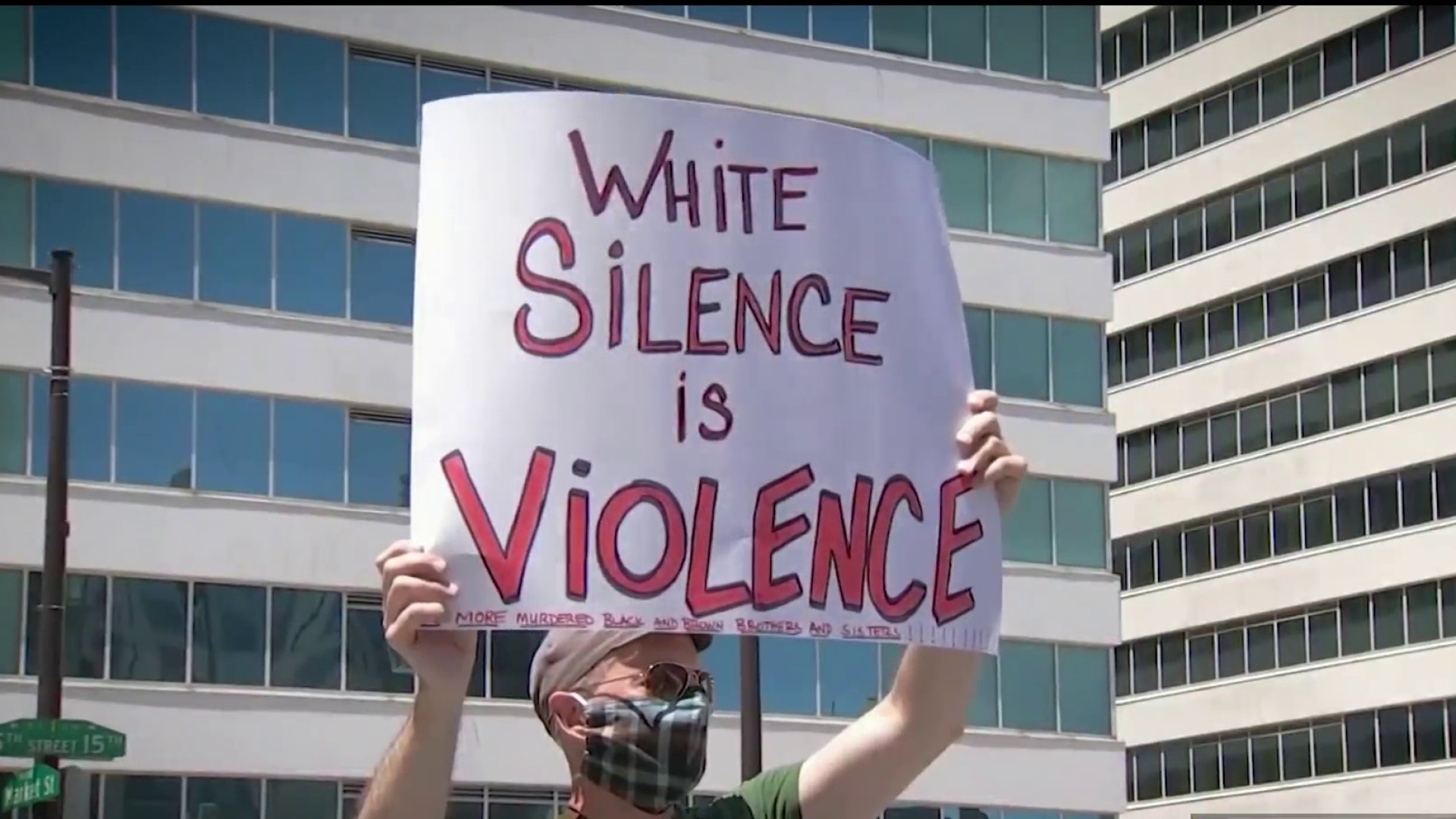Our national reckoning on racial injustice in America has left many of us reflecting on our past inaction or indifference to systemic racism in our communities.
Now, you may be left wondering what can be done to make a change. And that answer is dependent on you making time to expand your education on race.
As Myisha T. Hill, the co-founder of Check Your Privilege, told me, "It's listening, learning, taking action." (She has a great 90 day plan to kickstart your education without feeling overwhelmed. See the video piece below.)
Get Philly local news, weather forecasts, sports and entertainment stories to your inbox. Sign up for NBC Philadelphia newsletters.
Doing the work and leaning into your discomfort is half the battle. The other half is finding the right voices to guide your journey.
Here's some resources to get you started:
Climate Change
Check these sources for more on the intersection of climate change and racial justice.
The NAACP's environmental justice program
Princeton's work on racial disparities and climate change
Books to Read
From workbooks to novels, there's plenty of recommended reading on race and fighting racial injustice. Check out these books to expand your learning and understand how your actions may be contributing to the problem. Consider buying print versions so you can share these with your family and friends when you're done reading them.
"Between the World and Me" by Ta-Nehisi Coates
"Check Your Privilege: Live Into the Work" by Myisha T. Hill
"How to Be An Antiracist" by Ibram X. Kendi
"So You Want to Talk About Race" by Ijeoma Oluo
"Stamped: Racism, Antiracism, and You" by Jason Reynolds and Ibram X. Kendi
"The Bluest Eye" by Toni Morrison
"The Fire Next Time" by James Baldwin
"White Fragility" by Robin DiAngelo
"Why Are All the Black Kids Sitting Together in the Cafeteria?" by Beverly Daniel Tatum
More Reporting on The Fight Against Racial Injustice
Experts and Advocates to Follow
Listening to voices that are focused on educating people about injustices against Black, brown and indigenous people and pushing forward ideas to dismantle systemic racism is key. There are plenty of individual scholars, advocates and organizations providing daily nuggets of information for you to chew on during your journey. Here are a few options.
Black Lives Matter shares information about the movement to stop racism against Black people.
Check Your Privilege is a growing community focused on educating people on how to become anti-racist – a role they describe as a co-conspirator.
Myisha T. Hill is an advocate, coach and author who founded Check Your Privilege and Brown Sisters Speak, an organization that provides mental health resources to Black, indigenous and people of color.
Read. Watch. Act. This website -- produced by Maxwell Boise, a Syracuse, University senior -- offers resources and ideas for being an ally.
The Conscious Kid focuses on providing parents with resources to educate their children on race and equality issues.
Shifting the Culture was formed by three women of color – Natalie Bui, Veline Mojarro, Kausar Mohammed – and focuses on racial and gender equity.
Ijeoma Oluo is the author of "So You Want to Talk About Race", a New York Times bestseller about reflecting on your racial bias and doing the work to become anti-racist.
Layla Saad is the author of "Me and White Supremacy", another New York Times bestselling workbook on race. She is also the host of the Good Ancestor podcast, a series focusing on what it means to be a good ancestor.
Rachel Cargle is a public educator who among other ventures curates The Great Unlearn, an account that focuses on unlearning points of view that discount or overlook racial inequality.
Ibram X. Kendi is a scholar and anti-racist educator who wrote several bestselling works including "How to Be An Antiracist" and "Stamped From the Beginning". He is the founder and director of Boston University's Center for Antiracist Research.
The National Association for the Advancement of Colored People is a leading civil rights organization that for more than 100 years has been fighting for equality for Black people in the United States.
Ava DuVernay is a writer and filmmaker whose works include "Selma", "When They See Us" and the documentary "13th". She created Array, a nonprofit amplifying persons of color and women in filmmaking.
The American Civil Liberties Union is the foremost nonpartisan civil rights organization in America.
More Resources to Lean On
Why the Term “BIPOC” Is So Complicated, Explained by Linguists
Black. African American. Minority. Person of color. What should you use? Vox posed this question to linguists who say there's no one size fits all answer.
‘The Humanity of Blackness' Missing From History Classes: How to Transform Black History Education in Schools
Many Americans are not taught the full breadth of contributions by Black people to society and the economy. They are also not schooled on institutional racism. Educators are looking for an overhaul of the K-12 curriculum to fix this.
Breaking Point: Black Lives Taken That Pushed America to the Brink
This interactive timeline explores the Black lives that have been undervalued and lost to injustice in the United States over the past few decades.
An Age-By-Age Guide on How to Talk to Kids About Racism, Protests
Discussing racism, police brutality and protests with children may feel daunting to parents. Still, experts say it's important to educate your children about these issues. So here's a guide, by age group, to help craft your approach.
Take the Harvard Implicit Bias Test
Sometimes we make decisions based on biases we don't realize we have. Researchers at Harvard University are studying these implicit biases. They're offering a test for you to take.
8 Podcasts You Should Listen to About Race and Racial Injustice in the US
There are excellent podcasts to expand your education on race in America. The folks from TODAY put together a curated list of important listens rang. Some are series while others are episodes.
Justice in June
This guide to taking action in combating racism and supporting communities of color is broken down by the amount of time you can devote to your learning each day ranging from 10 minutes a day to 45 minutes a day.
How Do I Talk About Race at Work?
The folks at Technical.ly spoke to two diversity experts about how to make short-term and long-term changes to work culture. The piece is part of a series for the site's Racial Equity Month series. Additional pieces focus on actions white organization leaders should take now and how company leaders are talking to their employees about the civil unrest.



